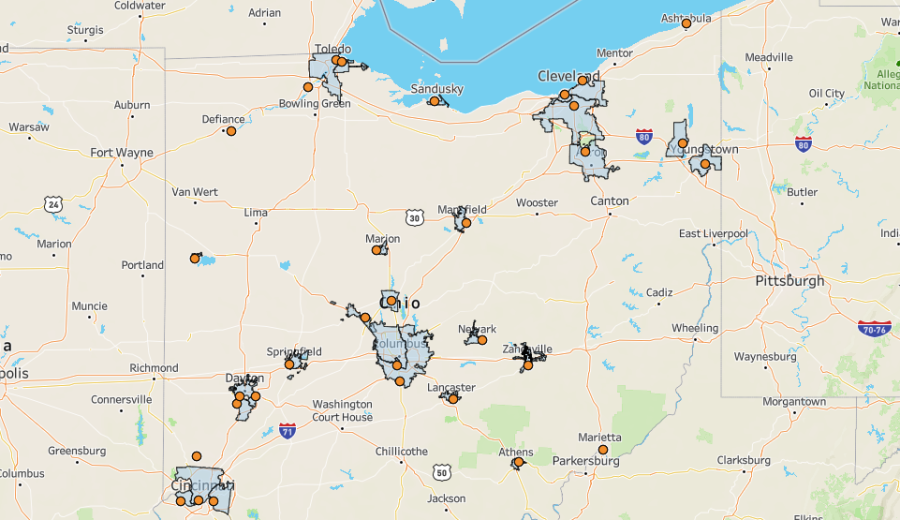Kent State assisting in testing wastewater for COVID-19
September 14, 2020
Kent State is assisting the Ohio Coronavirus Wastewater Monitoring Network by testing for the virus in its labs, but the university is not testing its own wastewater.
The Ohio-based initiative tests wastewater from major cities to detect early signs of a COVID-19 outbreak by testing for small pieces of the virus, according to the Ohio Department of Health’s website.
The lab at Kent State sends its findings to the Ohio Water Resources Center. From there the data is sent to the Ohio Department of Health, said Xiaozhen Mou, an associate professor of biological sciences at Kent State. Mou is in charge of the lab research on campus.
“Once you’re infected by the virus, you will continue to shed the particles into the wastewater. Even people having no symptoms or asymptomatic infection,” Mou said. “We will catch the signal in the wastewater.”
The goal of the research is to detect a potential outbreak before it happens.
“Based on the current data, potentially, we will catch the signal by at least two or three days before you see an increase of the number [of hospitalizations],” Mou said. “So basically it can provide time to prepare or to make actions.”
Although the City of Kent has a wastewater lab, it’s not testing for COVID-19, said Eric Gorczynski, a public health sanitarian at the Kent City Health Department.
“I think we’re considering many different things. First, the population size is one of the big things to consider. So Kent is not yet included, but probably will be in in the future,” Mou said.
Another university that is part of the monitoring network is The Ohio State University, where researchers test samples from residence halls and several surrounding areas. Kent State is also considering testing the wastewater in residence halls for the virus, Mou said.
“At other universities, they’re using [the test results] as an indicator to shut down,” Gorczynski said.
Advocating for Kent State to test its wastewater is Kent City Health Commissioner Joan Seidel.
“They have the capabilities, they have the lab, they have the expertise to do it,” Seidel said. “I would love to have that as a tool in terms of trying to help learn how much of a burden COVID really is in our community and where there might be hot spots percolating that we’re not aware of.”
The monitoring program primarily focuses on testing the wastewater of large cities, Seidel said. However, the monitoring network is also testing smaller populations where the virus has already spread.
The lab consists of Mou working alongside a graduate student and an undergraduate student. Social distancing guidelines prevent the project from having too many people working at once. In addition, participants must go through a training process before they can start working in the lab.
The work is “pretty labor intensive” according to Mou, but she hopes to get more students approved for the project soon.
Megan Becker covers COVID-19. Contact her at [email protected].

























